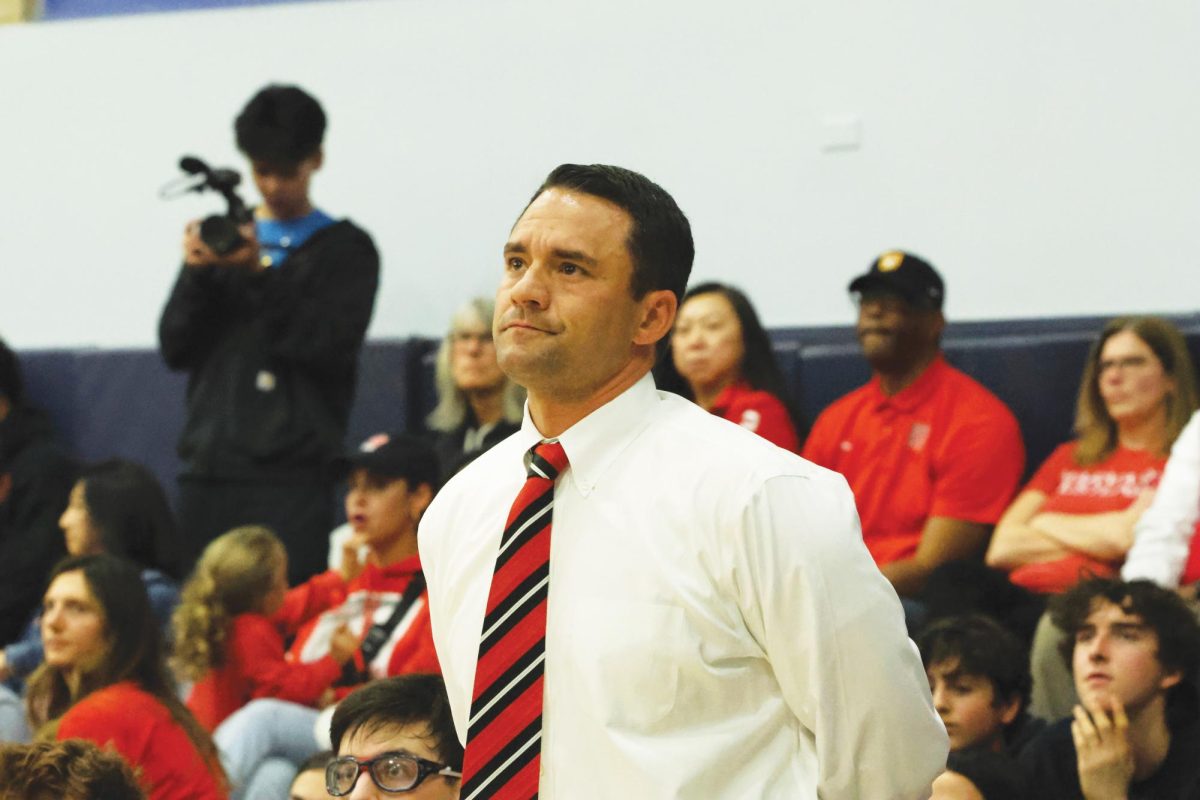By Candace Ravan
Over the past 30 years, Head of Computer services David Ruben estimates that he has spent nearly $100,000 fueling his nicotine addiction. Ruben first started smoking cigarettes during his sophomore year of college and now smokes an average of three packs of cigarettes a day.
“Not only is smoking a waste of money, but you have absolutely nothing to show for it,” Ruben said. “Talk about stupid.”
Aside from the serious dent in his wallet, Ruben acknowledges that there are more important issues concerning his health that his addiction has caused.
“I have a hard time walking up the stairs from the parking lot,” Ruben said of his daily treks up to the third floor of Chalmers. Ruben, who can hardly last more than four or five hours without a cigarette, takes frequent smoking breaks in the Weiler parking lot just below his office. Although Ruben has always noticed the subtle side-effects of smoking, only recently has he had experienced more serious health problems.
Like many people, including other Harvard-Westlake teachers and students who are addicted to cigarettes, Ruben is in a constant battle with his smoking addiction, he said. According to a 2008 Gallup poll, 74 percent of Americans who smoke say they would like to quit, and 67 percent say they are addicted to cigarettes. Ruben agrees that he doesnât “know any smokers who want to smoke,” including himself.
“Iâve tried to quit more times than Iâve celebrated my birthday,” he said. “Iâve read books about quitting, tried cessation programs, used nicotine patches and hypnotism.”
Despite his numerous attempts at quitting, Rubenâs longest smoking hiatus lasted two and a half years before he returned to his old habit.
James*, a senior who started smoking regularly at the end of his sophomore year, has also found it nearly impossible to quit. Despite suffering from frequent headaches, James feels a constant temptation to smoke.
“The hardest part of quitting is seeing my friends having a cigarette right next to me. Itâs hard to stay away from others who smoke and I just canât control my cravings,” he said.
For nearly two years, James has hidden his addiction from his parents, who “have never actually caught me smoking. They have a hunch, but donât really know how often I smoke,” he said.
While Jamesâ parents are still unaware of his daily smoking habit, he credits his friends for encouraging him to quit. Jamesâ longest quitting period lasted just over two months because “after a certain point it started to become disgusting to me, so I decided to stop,” he said.
“I tell myself Iâm going to quit every single day of my life, but itâs just not happening right now,” he said.
Unlike James, Ruben has sought professional help to treat his addiction.
One method which Ruben believes was most effective was a cessation class he took several years ago. Addiction specialists told Ruben to chain smoke cigarettes in a dark room while listening to music playing backwards, in order to create a negative association with smoking, Ruben said.
Rubenâs most recent quitting effort lasted nearly a month, but he has since started smoking again. He acknowledges that “the easiest time to quit was about a year after [he] started,” and finds that his addiction has steadily become harder to put aside.In other attempts to quit, Ruben has relied on nicotine patches, particularly during the first few days, when abstaining is the most difficult, he said. Ruben also wears nicotine patches while traveling for long periods of time in order to help cut cravings.
“You get so used to planning around [your addiction], itâs ridiculous. You become the puppet, not the puppeteer. Youâre just a puppet on a string,” Ruben said. “Iâve done a lot of stupid things in my life but my only regret is having that first cigarette when I was twenty years old.”
Another technique that Ruben finds particularly helpful when trying to quit is cutting back on stimulants, such as caffeine. In absence of his three-pack-a-day habit, which consumes about an hour of each day, Ruben has noticed that “there seems to be a vacuum since smoking is something you spend a lot of your time doing,” he said. “You need to replace a bad habit with a good habit. For me, that tends to be eating well and exercising. When I stop smoking, I can taste food again and my appetite comes back.”
In light of his own situation, Ruben advises students who are trying to quit to “take it seriously. Donât say âIâm going to quit tomorrow, or next month or next year.â Quit when it matters, before you wreck your health, start wearing glasses and lose all your hair,” he said. “Donât look at quitting as depriving yourself of something, but as being able to breathe again.”




































